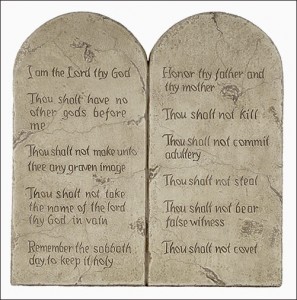Walker, Neumann, and Eckstein Hall
Before we get to the candidates, how did the building do?
Wednesday night’s one-hour session between Mark Neumann and Scott Walker, who will face off in the Republican primary for governor on Sept. 14, was the first event of its kind in Eckstein Hall, the new home o f the Law School. The discussion – call it a debate, if you want – was hosted by Mike Gousha, the Law School’s distinguished fellow in law and public policy, and was broadcast live on television and radio stations across Wisconsin.
And the building did fine. The Appellate Courtroom was an attractive setting, the logistics of the event went well, and, using the impressive array of equipment in the broadcast control room in the building, the technically-demanding broadcast went off without a hitch. That included segments in which people in five locations across the state joined in live to ask questions to the candidates. To a casual viewer, it looked good. (Anyone on the inside of a live broadcast like this will roll their eyes at any use of the word “casual” in connection with such an effort.)
Oh, yes, the candidates.

